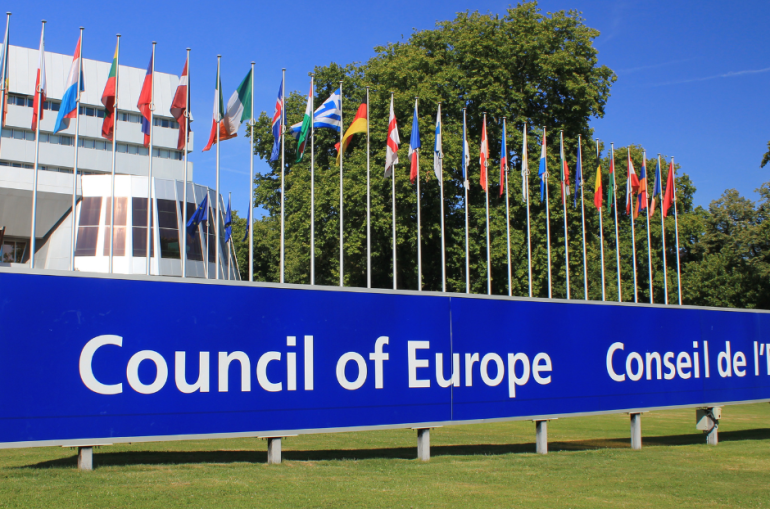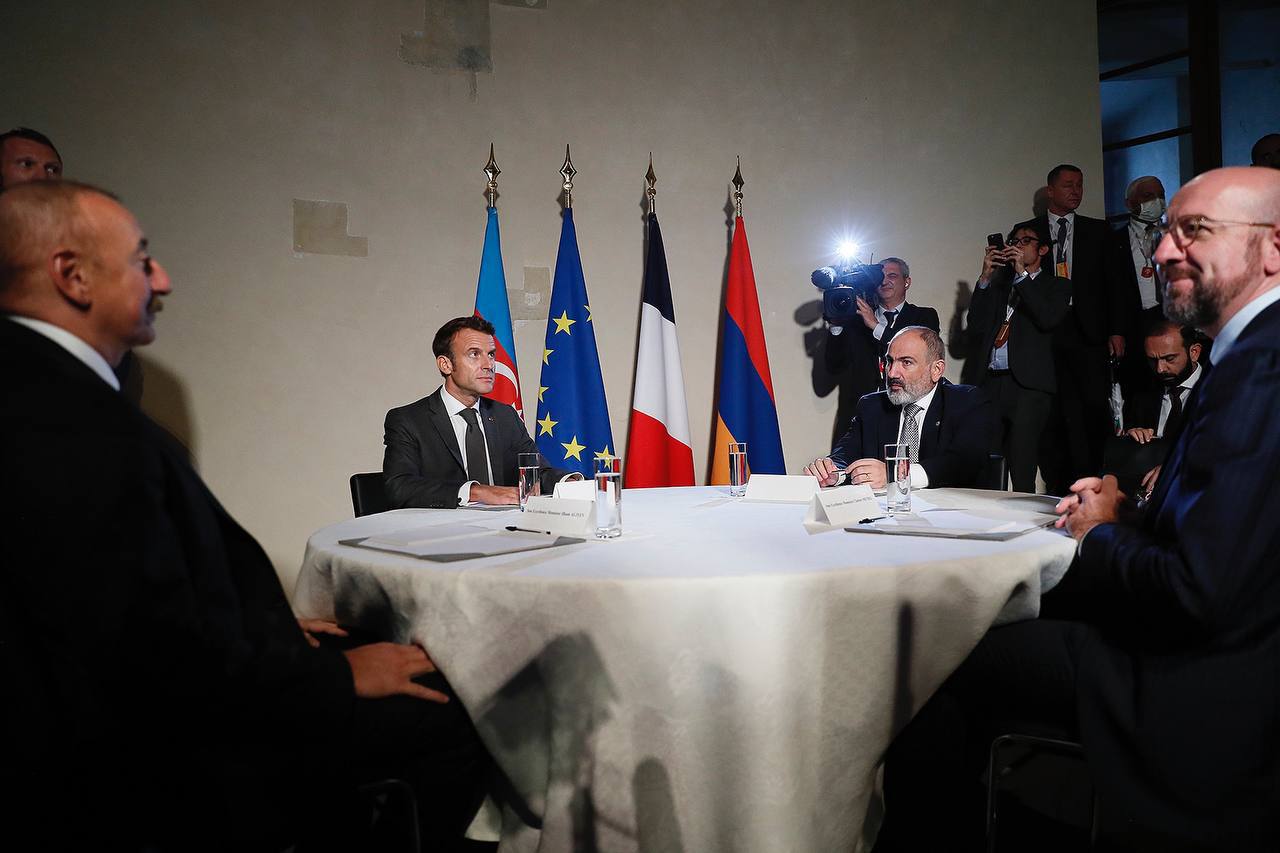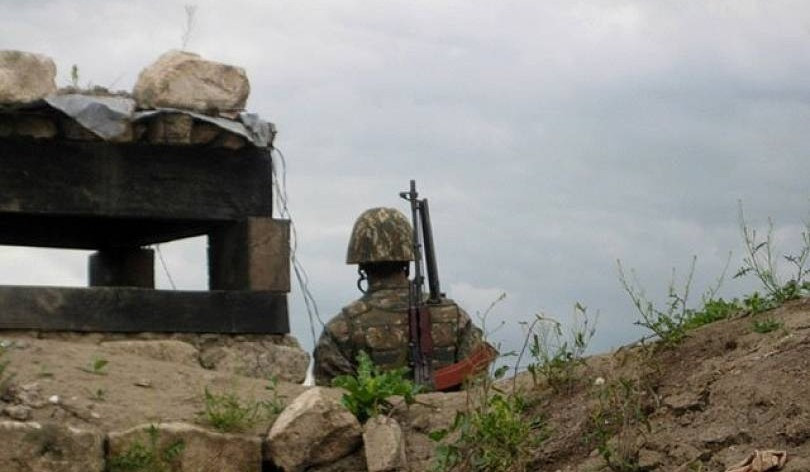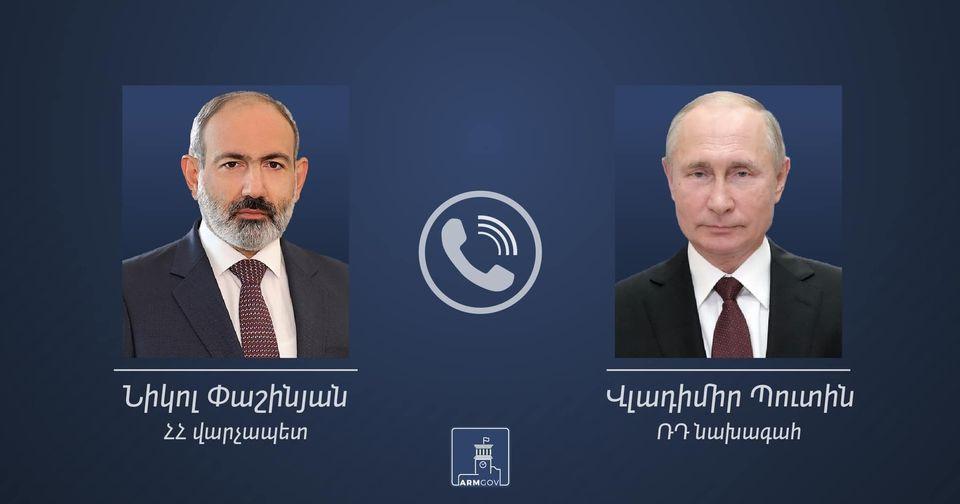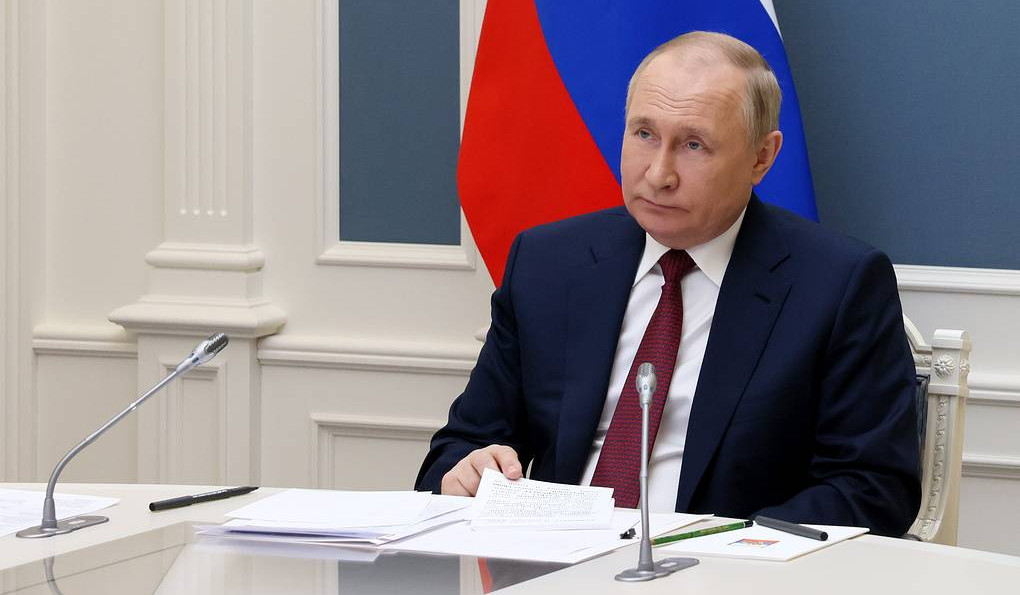WION – Hello, welcome to WION’s Global Leadership Series. Our guest is Armenia’s Prime Minister Nikol Pashinyan. It is good to have you on WION, Mr. Pashinyan, welcome to the show.
Prime Minister Nikol Pashinyan - I am very glad to be with you. Thank you.
WION - The hostilities in Karabakh have been going on for 4 weeks now. Two ceasefire agreements have already failed. Are you prepared for a protracted war?
Prime Minister Nikol Pashinyan - This is a war that was imposed on us. In the context of the ceasefire agreement, Armenia has been honoring her commitments. It is Azerbaijan which fails to honor his commitments. And this has reasons.
The problem is that in this war against Nagorno-Karabakh we see not only Azerbaijan, but also Turkey involved, as well as mercenaries and terrorists brought to the conflict zone by Turkey. You can only imagine essentially what a confusing and chaotic situation it is that we are dealing with. We also have information about armed fighters from Pakistan taking part in the war against Nagorno-Karabakh. And perhaps, the multilayer nature of this situation is one reason why we cannot achieve stabilization. As to the Armenians in Nagorno-Karabakh, they have no choice in this situation, but to use all possible means to the very end to defend themselves as long as there is no diplomatic solution, until the time a diplomatic solution to the issue can be provided.
WION – Addressing the nation with a message, you said that at least at this stage there is no diplomatic solution to the Karabakh issue. Then what is the solution?
Prime Minister Nikol Pashinyan - To solve this issue we need mutual concessions, and every time Armenia expresses willingness to make any concession by even lowering a bit the bar the Armenian side has set, Azerbaijan comes up with new demands, new conditions. That has been the case for a long time in the negotiations. By saying that there is no diplomatic solution at this stage, I referred to Azerbaijan’s non-constructive position. Azerbaijan is not ready for any solution to the issue based on mutual concessions. As soon as Azerbaijan is ready for such a scenario, I think we will have some success. But so long as that is not the case, it would be very hard to achieve a diplomatic solution. That, of course, does not mean that we stop working in that direction, we shall continue to work in that direction.
WION - Azerbaijan accuses Armenia of violating the ceasefire. How would you react to that allegation?
Prime Minister Nikol Pashinyan - You see, in these cases, nobody says: “Yes, I was the one to break the truce.” But I am asking a question. Let us build up a logical chain. The fact that the war was started by Azerbaijan is a fact. It is also a fact that Azerbaijan has armed terrorists fighting on its side. It is a fact. I do not know of armed terrorists engaged in any conflict zone seeking to achieve truce. And thirdly, every time there is an understanding on ceasefire, Turkey publicly states that Azerbaijan should not stop the fighting. As we build this logical chain, we can quickly conclude who has actually failed to respect the ceasefire.
WION - Addressing the issue of armed terrorists, you mentioned that terrorists had been sent from Pakistan. Armenia has no diplomatic relations with Pakistan, but you can appeal to the international community to put pressure on Pakistan with a view to suspending the export of armed terrorists and de-escalating the situation between Armenia and Azerbaijan. What is being done in that direction?
Prime Minister Nikol Pashinyan - We have shared all of that information with our international partners. And in the international media, there have been publications already which prove that terrorists and mercenaries from Syria are taking part in the Karabakh war. International organizations have been informed already. A number of countries have officially acknowledged that there are terrorists and mercenaries in the conflict zone. And they have already expressed their concern over this. And, of course, the international community should condemn such actions and such practices and take specific measures against the presence of terrorism in the region.
WION – Armenia’s President recently visited the NATO headquarters. The Secretary General of the Alliance said NATO will abide by a neutral stance. What are your next steps?
Prime Minister Nikol Pashinyan - Turkey is a member of NATO and I think that the actions which Turkey is now taking in the war against Nagorno-Karabakh impose a certain responsibility on NATO as well. Today the International human rights watch has stated that Azerbaijan is using prohibited ammunition, cluster bombs in the Karabakh conflict zone. And these are grave violations of international law when a member state of NATO is engaged when a member state of NATO is transporting mercenaries and terrorists to the conflict zone to start a war against Nagorno-Karabakh. Then NATO has direct responsibility, NATO must answer these questions after all how it feels about one of its member stares recruiting terrorists and transporting them to a conflict zone and secondly taking part in a process in which prohibited weapons are being used, rocket shelling civilian population.
WION - Do you think that NATO and other multipartite international organizations such as the UN have failed in handling situations like this?
Prime Minister Nikol Pashinyan - You see, this has been a problem for quite some time now. Experience has shown that those operations are not necessarily effective. These types of organizations very often do not have sufficient leverage to impact the situation. That is why we think that in this situation one possible way out could be the deployment of Russian peacekeeping troops in the conflict zone. And we think the international community, namely the OSCE Minsk Group Co-Chair countries should support and encourage the deployment of Russian peacekeeping troops to the conflict zone, because otherwise we will not see any specific action to prevent or stop this humanitarian crisis.
WION – Talking about the role of Turkey, you mentioned that Turkey has committed numerous human rights violations during this conflict. Do you have any specific evidence?
Prime Minister Nikol Pashinyan - Are you asking about the relevance of Turkish participation? Yes, of course, there is specific evidence. There is proof. This war has become the continuation of the Turkish-Azerbaijani joined military exercise which began as early as in August. Turkey essentially does not conceal its engagement in this process. Turkey’s highest officials have stated that they support Azerbaijan on the battlefield. The availability on the ground of Turkish military personnel and equipment - Turkish Bayraktar UAVs - nearly a dozen of which have been shot down by the self-defense forces of Nagorno-Karabakh comes to prove Turkey’s engagement in the process. Further evidence is that Turkey has recruited mercenaries and terrorists in Syria and transported them to the conflict zone. There are several pieces of specific evidence that we have collected and forwarded to the international community. By the way, one more important point, based on a power application, the European Court of Human Rights has adopted a decision in which it proves that Turkey is engaged in the process.
WION - Pakistani terrorists are involved in the conflict zone, Turkey continues to send Syrian militants to fight on the part of Azerbaijan. The Turkish Vice President recently announced that they are ready to provide military assistance to Azerbaijan, should such a request be made. Is Armenia prepared to counter the Turkish forces, if they are openly involved in the conflict?
Prime Minister Nikol Pashinyan - In practice, they are already engaged, and the Defense Army of Nagorno-Karabakh has withstood to date. But this war as I said is imposed on the people of Nagorno-Karabakh and they have no choice other than to defend their lives and their rights up to the point to the international community undertakes specific measures to put end to this war and violence.
WION - In a previous interview you mentioned that the Armenians of Nagorno-Karabakh are facing an existential threat. In particular, you compared President Erdogan with Hitler and accused him of implementing a genocidal policy. In the meantime, the international community does not seem to respond. What are your next steps?
Prime Minister Nikol Pashinyan - I think that what is happening in Nagorno-Karabakh is the continuation of Turkey’s genocidal policy against the Armenians. You know that the Armenians were subjected to genocide by Ottoman Turkey in 1915. Many countries of the world have officially recognized the Armenian Genocide. As a result, there was ethnic cleansing on very large territories. And now my assessment is that 100 years later Turkey has returned to the South Caucasus to continue the genocidal policy against the Armenians. And this pursues a pragmatic objective whereas the Armenians in the South Caucasus are the last barrier to Turkey’s imperialistic policy to the south, east and southeast. Indeed the people of Nagorno-Karabakh are facing an existential threat, and we think that applying the principle of “remedial secession” in this context is the best and pragmatic solution to the problem if we are to ensure the security of the Armenians in Nagorno-Karabakh.
WION – Can we say that Armenia is actually caught in a proxy war between Turkey and Russia?
Prime Minister Nikol Pashinyan - No, I cannot say so because Russia is not engaged in this war and Russia is acting as a co-chair of the OSCE Minsk Group. The OSCE Minsk Group is the only internationally recognized format in which the Karabakh issue is to be discussed and settled. Russia is indeed Armenia’s strategic partner but it is not engaged in this war. It is engaged as an OSCE Minsk Group mediator to help resolve the Nagorno-Karabakh issue and achieve peace and stability in the region.
WION - Russia attempted a ceasefire initiative, and then U.S. Secretary of State Mike Pompeo took the lead by hosting the foreign ministers of Armenia and Azerbaijan. Thus, we have two mediation efforts and yet no result.
Prime Minister Nikol Pashinyan - I think that the OSCE Minsk Group Co-Chairs should bring together their efforts for resolving this issue and not act with separate initiatives. And I think it would be correct in this situation for the OSCE Minsk Group co-chairing nations – the United States and France - to support the other co-chair country, which is Russia, in its peacemaking efforts and not try to initiate separate peace processes or peace initiatives. Russia is closer to the region. Russia is present in the region. Russia has more effective tools for specifically influencing this situation.
WION – So you are not attending the Washington-initiated peace process?
Prime Minister Nikol Pashinyan - We do participate, of course, we do participate. And our Minister of Foreign Affairs is already in Washington, is set to meet Secretary of State Mike Pompeo. I just explained our position that the OSCE Minsk Group Co-Chairs should act in the same direction and not in different directions.
WION - Last year you visited Nagorno-Karabakh and said: “Karabakh is Armenia, period!” Nagorno-Karabakh has not been recognized by the UN. Do you think that the international community will support you?
Prime Minister Nikol Pashinyan - We need first of all to know the history of the Nagorno-Karabakh conflict. The present stage of the Nagorno-Karabakh conflict emerged in 1988 during the democratization process in the Soviet Union when Mikhail Gorbachev launched the process of “perestroika.” “Perestroika” implied democracy. The Armenians of Nagorno-Karabakh who had always constituted more than 80% of the population in that region decided to exercise the possibility of restoring their violated rights. What rights were violated? The point is that in the period of creation of the Soviet Union, Nagorno-Karabakh with over 80% Armenian population was handed over to Soviet Azerbaijan, and not to Soviet Armenia. This was a consequence of an arbitrary decision by Stalin. In 1988 the Armenians of Nagorno-Karabakh initiated a peaceful process. As a result, the Parliament of the Autonomous District of Nagorno-Karabakh adopted a decision on reunification with Armenia. And the Armenian people considered this a historic decision because the Armenian Parliament too adopted a similar decision. As to the international community, I think the international community should acknowledge those facts, and the most important fact here is that today Nagorno-Karabakh is fighting a war against international terrorists. And in this sense, Nagorno-Karabakh is waging a war against international terrorism. It stands at the forefront of civilization. And I do believe that the international community should apply the principle of “remedial secession.”
WION - Do you expect India to back your position on Nagorno-Karabakh? What kind of support do you expect from New Delhi?
Prime Minister Nikol Pashinyan - I have already said what I expect the international community and other actors, including New Deli to acknowledge that Turkey has organized the transportation of terrorists and mercenaries to Azerbaijan; to acknowledge that this war was started by Turkey, terrorist organization and Azerbaijan; to acknowledge that Karabakh is facing an existential threat and genocide, and to consider that the principle of “remedial secession” is applicable to Nagorno-Karabakh in this context, and recognize its independence.
WION - How long do you think this is going to continue? I would lime to go back where I began from; ceasefire efforts have failed; peace efforts have not yielded. How long of war or confrontation are you prepared for?
Prime Minister Nikol Pashinyan - The Armenians of Nagorno-Karabakh as I said will fight to the last to defend their security but I hope that our diplomatic efforts will help stop the war as soon as possible.
WION - Mr. Prime Minister, thank you very much for being with us.
Prime Minister Nikol Pashinyan - Thank you, too.

